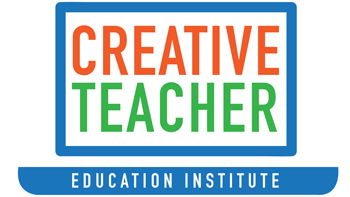Description
PEDC 9005 Are You Using Your Brain? / Brain-Based Learning Strategies for the K-12 Classroom
3 Graduate Level or In-service Credits/ 45 hours Instructor: Janice McLachlan September 1-30, October 1-30, November 1-30, April 1-29, May 1-30, July 1-30
University of the Pacific
Learn how the brain functions and is structured to increase student success in the classroom on a day to day basis for optimal learning experiences. Educators will create a positive impact through brain-based learning strategies to their individual curriculum, lesson plans, instructional methods, student emotional learning preference, and development of effective assessment techniques to help promote a healthy and more productive learning environment. Renate and Geoffrey Caine developed the Twelve Core Principles of Brain-Based Learning. This will be the focus of our research and differentiated planning techniques with many additional theories founded on these ideas. Teachers will study the philosophy of Choice Theory, developed by psychiatrist William Glasser. Choice Theory conveys the idea that we seek to satisfy the following 5 basic internal needs: to love, belonging, power, freedom, fun and survival. Every brain learns differently, it is important for every educator to put these ideas to practice. This class is appropriate for all educators N-12, ELA, Social Studies, Math, Science, LOTE, ESL, Special Education, the Arts, Physical Education, Guidance Counselors and Social Workers.
How will this course help educators to meet the Common Core and Next Generation State Standards?
Educators will learn how to integrate philosophies of Brain-based Learning across the curriculum to share in the responsibility of teaching literacy to all students. They will learn how to teach students to show evidence of learning with informational and complex text using academic vocabulary and multiple sources through motivating multi-media experiences based on their individual grade level and subject specialization. Educators will integrate and create relevant classroom resources to meet specific Anchor Standards in ELA and Mathematics to meet course specific student learning objectives and increase academic success in preparation for college and career readiness with proven Brain-based Lear.
How will this course benefit my classroom instruction and student learning objectives?
Foreign Language and LOTE
Teachers will learn how to create motivating literature rich experiences to facilitate in their ELA classrooms. Brain-based Learning topics will be bridged across the curriculum to help meet the rigor of the CCSS. Teachers learn how to integrate a wide variety of Brain-based Learning opportunities to meet the CCSS ELA Standards: Reading, Speaking, Writing, Listening and Language by creating motivating PowerPoint presentations and lesson plans in addition to a plethora of classroom resources to bring back to the classroom for increased student achievement through informational texts.
Mathematics
Teachers will learn how to integrate the topics in Brain-based Learning to make connections to the mathematical practices to mathematical content in mathematics instruction. Teachers will learn how to create a wide variety of classroom resources including lesson planning and PowerPoint presentation to help students learn how to think like a mathematician. Make sense of problems and persevere in solving them, reason abstractly and quantitatively, construct viable arguments and critique the reasoning of others.
Science
Teachers will integrate Science into Brain-based Learning topics to make connections to informational text that will expose students to a broad range of genres and multi-media formats. Teachers will learn how to create a wide variety of classroom resources including lesson planning and PowerPoint presentations to help students learn how to think like a scientist. Teachers will use Brain-based Learning and Science to share in the responsibility of facilitating literacy across the curriculum by creating opportunities for students to read, write and answer questions through multiple sources with the focus on academic vocabulary and technical ideas.
Social Studies
Teachers will integrate Social Studies into Brain-based Learning topics to make connections to informational text that will expose students to a broad range of genres and multi-media formats. Teachers will learn how to create a wide variety of classroom resources including lesson planning and PowerPoint presentations to help students learn about historical events. Teachers will use Brain-based Learning and Social Studies to share in the responsibility of facilitating literacy across the curriculum by creating opportunities for students to read, write and answer questions through multiple sources with the focus on academic vocabulary.
The Arts: Art, Music, Physical Education
Teachers will use Brain-based Learning topics to make connections to informational text that will expose students to a broad range of genres and multi-media formats. Teachers will learn how to create a wide variety of classroom resources including lesson planning and PowerPoint presentations to help students learn how think critically and bridge topics to all other areas of learning. Teachers will use Brain-based Learning to share in the responsibility of facilitating literacy across the curriculum by creating opportunities for students to read, write and answer questions through multiple sources with the focus on academic vocabulary.
Special Education
Teachers will use the relevant Anchor Standards in ELA and Mathematics in conjunction with Brain-based Learning topics to create support and related services to students with disabilities that will expose them to a broad range of genres and multi-media formats. Teachers will learn how to create a wide variety of classroom resources including lesson planning and PowerPoint presentations to help students learn how think critically and bridge topics to all other areas of learning. Teachers will use the Brain-based Learning to share in the responsibility of facilitating literacy across the curriculum by creating opportunities for students to read, write and answer questions through multiple sources with the focus on academic vocabulary the meet the unique needs of the student.
Social Workers, Guidance Counselors and School Psychologists
Educators will use the relevant Anchor Standards in ELA and Mathematics in conjunction with Brain-based Learning topics to create support and related services to students that will expose them to a broad range of genres and multi-media formats. Teachers will learn how to create a wide variety of classroom resources including lesson planning and PowerPoint presentations to help students learn how think critically, solve problems and bridge topics to all other areas of learning. Teachers will use Brain-based Learning to share in the responsibility of facilitating literacy across the curriculum by creating opportunities for students to read, write and answer questions through multiple sources with the focus on academic vocabulary the meet the unique needs of the student that will help them for college and career readiness.
Elementary Education
Teachers will use the relevant Anchor Standards in ELA and Mathematics in conjunction with Brain-based Learning topics to create experiences that will expose students to a broad range of genres and multi-media formats. Teachers will learn how to create a wide variety of classroom resources including lesson planning and PowerPoint presentations to help students learn how think critically and bridge topics to all other areas of learning. Teachers will use Brain-based Learning to share in the responsibility of facilitating literacy across the curriculum by creating opportunities for students to read, write and answer questions through multiple sources with the focus on academic vocabulary the meet the unique needs of the student.
Secondary Education
Teachers will use the relevant Anchor Standards in ELA and Mathematics in conjunction with Brain-based Learning topics to expose students to a broad range of genres and multi-media formats. Teachers will learn how to create a wide variety of classroom resources including lesson planning and PowerPoint presentations to help students learn how think critically and bridge topics to all other areas of learning. Teachers will use the Brain-based Learning to share in the responsibility of facilitating literacy across the curriculum by creating opportunities for students to read, write and answer questions through multiple sources with the focus on academic vocabulary the meet the unique needs of their classroom.
Media and Technology Specialists
Educators will use the relevant Anchor Standards in ELA and Mathematics in conjunction with Brain-based Learning topics to expose students to a broad range of genres and multi-media and digital formats. Educators will learn how to create a wide variety of classroom resources including lesson planning and PowerPoint presentations to help students learn how think critically and bridge topics to all other areas of learning by using technology. Teachers will use Brain-based Learning to share in the responsibility of facilitating literacy across the curriculum by creating opportunities for students to read, write and answer questions through multiple sources with the focus on academic vocabulary the meet the unique needs of their classroom.
Career and Vocational Specialists
Educators will use the relevant Anchor Standards in ELA and Mathematics in conjunction with Brain-based Learning topics to expose students to a broad range of genres and multi-media formats. Teachers will learn how to create a wide variety of classroom resources including lesson planning and PowerPoint presentations to help students learn how think critically and bridge topics to all other areas of learning. Teachers will use Brain-based Learning to share in the responsibility of facilitating literacy across the curriculum by creating opportunities for students to read, write and answer questions through multiple sources with the focus on academic vocabulary the meet the unique needs of their classroom and succeed in college and career readiness.
Additional information
| Course Date | September 1-30, October 1-30, November 1-30, April 1-29, July 1-30, May 1-30 |
|---|






Reviews
There are no reviews yet.